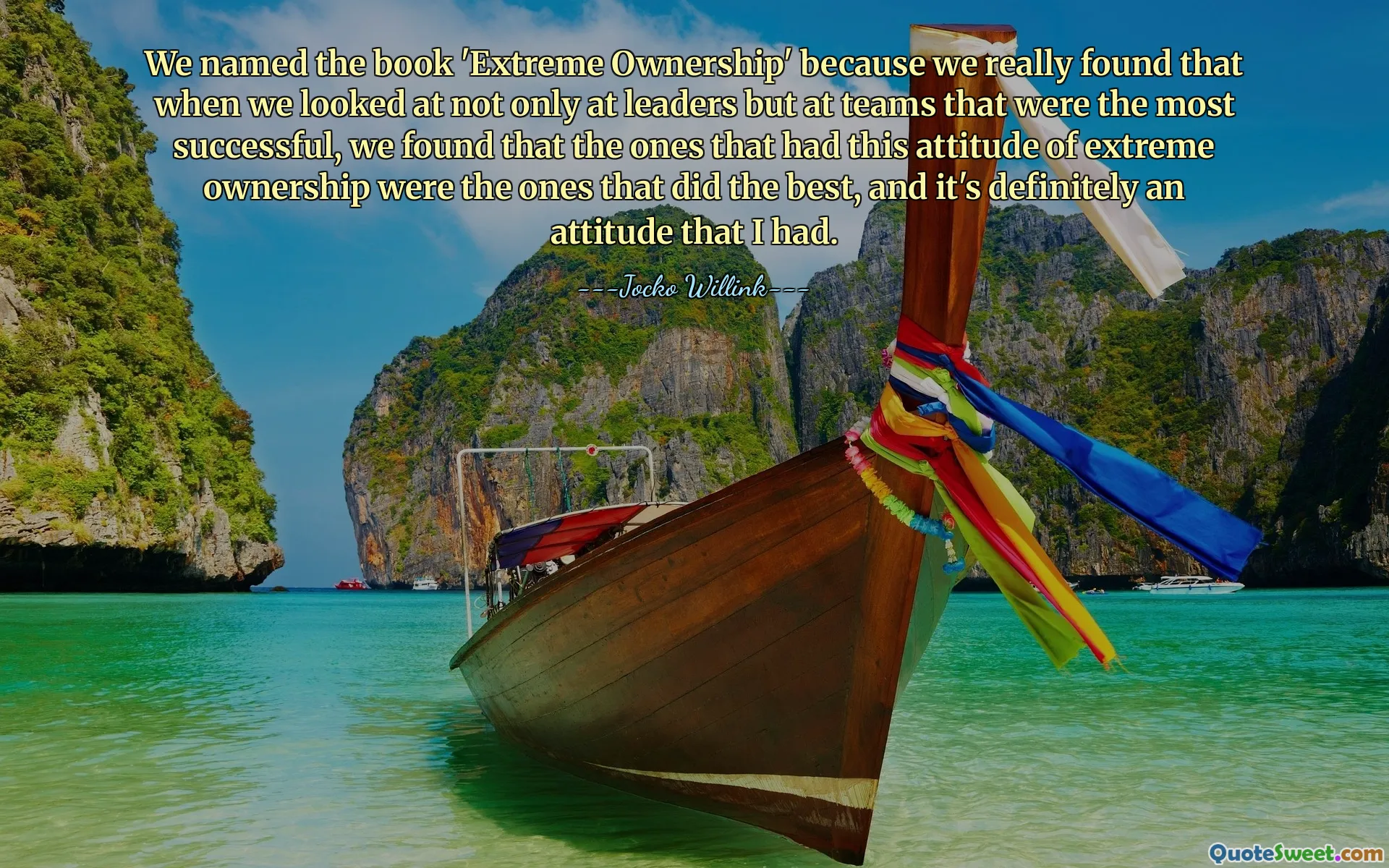
We named the book 'Extreme Ownership' because we really found that when we looked at not only at leaders but at teams that were the most successful, we found that the ones that had this attitude of extreme ownership were the ones that did the best, and it's definitely an attitude that I had.
📖 Jocko Willink
The concept of 'Extreme Ownership' emphasizes the importance of taking full responsibility for one's actions, decisions, and the overall outcome of a team's efforts. When individuals, especially leaders, adopt this mindset, it fosters an environment of accountability and trust. Such a mindset encourages proactive problem-solving, avoiding blame-shifting, and instead focusing on solutions and improvements. By owning every aspect of the mission or task, leaders set a tone that promotes integrity, resilience, and dedication throughout the team. This approach not only enhances performance but also cultivates a culture where team members feel empowered to address issues head-on and learn from mistakes rather than defending or denying them. It's a powerful reminder that successful teams are built on accountability at all levels. Implementing this philosophy can be challenging, as it requires humility and a willingness to accept responsibility, even in situations where blaming others might be easier or more comfortable. Nevertheless, the payoffs are substantial—stronger cohesion, faster adaptability, and better results support this attitude's transformative potential. The idea resonates profoundly because it underscores that leadership is not just about giving orders but about owning both successes and failures. This perspective can fundamentally change organizational culture if embraced genuinely, making it a vital principle for sustainable success.







